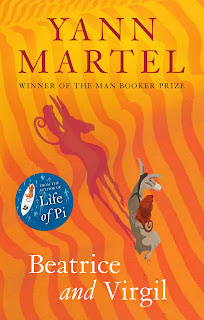By Amrita Paul
A thing or two about a great narrative is that it keeps its readers hooked on to it, till the very end. Rishi Vohra’s “Once upon the tracks of Mumbai” could have been that and much more. Except that it’s not. Rising out of stereotypes which is more or less definitive of Mumbai, this is the story of Bubloo, a “schizophrenic” who resides in the railway colony of Bandra, frequently obsessing over his physical self –“I was only five feet eight inches tall, but athletic and well built .... My straight, silky black hair stopped just above my shoulders, giving me a wild unkempt look. My face was long and chiselled and my jaw line well defined ...”
He is the prodigal son who is unable to decide what to do with his life and his diminutive existence is of no concern to anyone, even his family who keep citing the example of his brother Raghu, who was doing quite well for himself. The only silver lining is Vandana, who is pretty of course but kind hearted Bubloo does like her for her nature and for hearing him out when clearly nobody else is in a mood to.
This is the story of Bubloo, his journey from being a nobody to becoming someone of consequence. This is a story of man’s quest to defeat all odds and find him-self amidst the cacophonous environment of a posh Mumbai suburb. The characters could be better etched and not clichéd to the point where every character feels like a generalisation of a particular social class, gender and age. The characters are hardly well rounded, in the sense that they are either too good or too bad, just as you would expect in a bollywood flick, except here, in this novel, the entire razzmatazz just does not work to the benefit of the plot.
It is an easy read, which is one of the better things about this book. But it somehow fails to move me. Babloo is mentioned to have been autistic and psychotic, yet in the book he comes across as someone plain foolish. It becomes so difficult to empathize with him when he is so obviously concerned mostly about his physical self, which comes to his rescue when everything else fails. His plight is only his, because even when he finds his redemption, it feels as if he is only emulating heroes on screen by beating up the bad guys rather than doing it out of the sheer injustice of a the given unfortunate situation.
The end, too, is hardly a surprise. As a first time author, Rishi Vohra has tried incorporating a lot of issues in this novel, instead of dealing with just one or two at a time, which makes the story fall flat, to a certain extent. The city of Mumbai perhaps plays the most important character of being ruthless yet beautiful, observant yet distant. Vohra has described the city and its lifeline – the railway tracks, accurately which adds to the benefit of his story but only if his characters were of stronger mettle instead of being so obvious all the time, “Once upon the tracks of Mumbai” could have made for a much better book.
He is the prodigal son who is unable to decide what to do with his life and his diminutive existence is of no concern to anyone, even his family who keep citing the example of his brother Raghu, who was doing quite well for himself. The only silver lining is Vandana, who is pretty of course but kind hearted Bubloo does like her for her nature and for hearing him out when clearly nobody else is in a mood to.
This is the story of Bubloo, his journey from being a nobody to becoming someone of consequence. This is a story of man’s quest to defeat all odds and find him-self amidst the cacophonous environment of a posh Mumbai suburb. The characters could be better etched and not clichéd to the point where every character feels like a generalisation of a particular social class, gender and age. The characters are hardly well rounded, in the sense that they are either too good or too bad, just as you would expect in a bollywood flick, except here, in this novel, the entire razzmatazz just does not work to the benefit of the plot.
It is an easy read, which is one of the better things about this book. But it somehow fails to move me. Babloo is mentioned to have been autistic and psychotic, yet in the book he comes across as someone plain foolish. It becomes so difficult to empathize with him when he is so obviously concerned mostly about his physical self, which comes to his rescue when everything else fails. His plight is only his, because even when he finds his redemption, it feels as if he is only emulating heroes on screen by beating up the bad guys rather than doing it out of the sheer injustice of a the given unfortunate situation.
The end, too, is hardly a surprise. As a first time author, Rishi Vohra has tried incorporating a lot of issues in this novel, instead of dealing with just one or two at a time, which makes the story fall flat, to a certain extent. The city of Mumbai perhaps plays the most important character of being ruthless yet beautiful, observant yet distant. Vohra has described the city and its lifeline – the railway tracks, accurately which adds to the benefit of his story but only if his characters were of stronger mettle instead of being so obvious all the time, “Once upon the tracks of Mumbai” could have made for a much better book.























